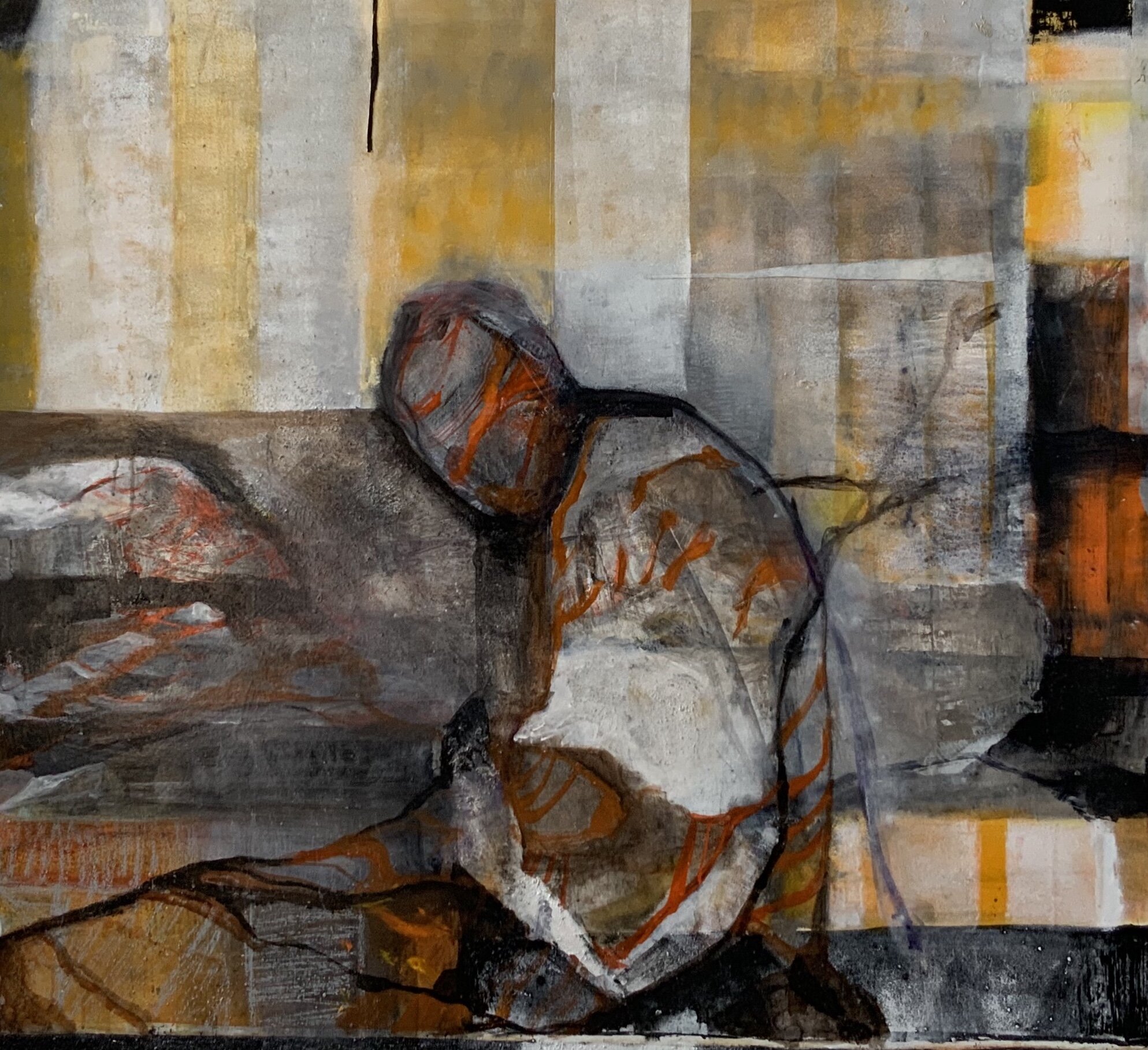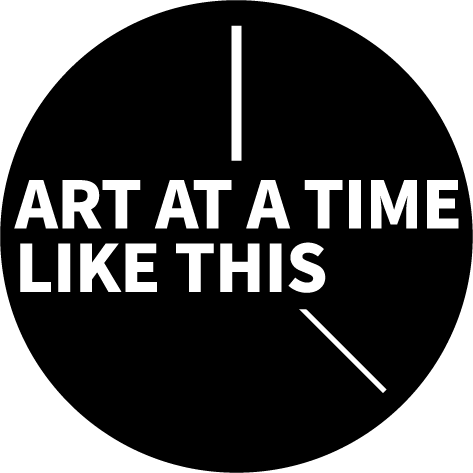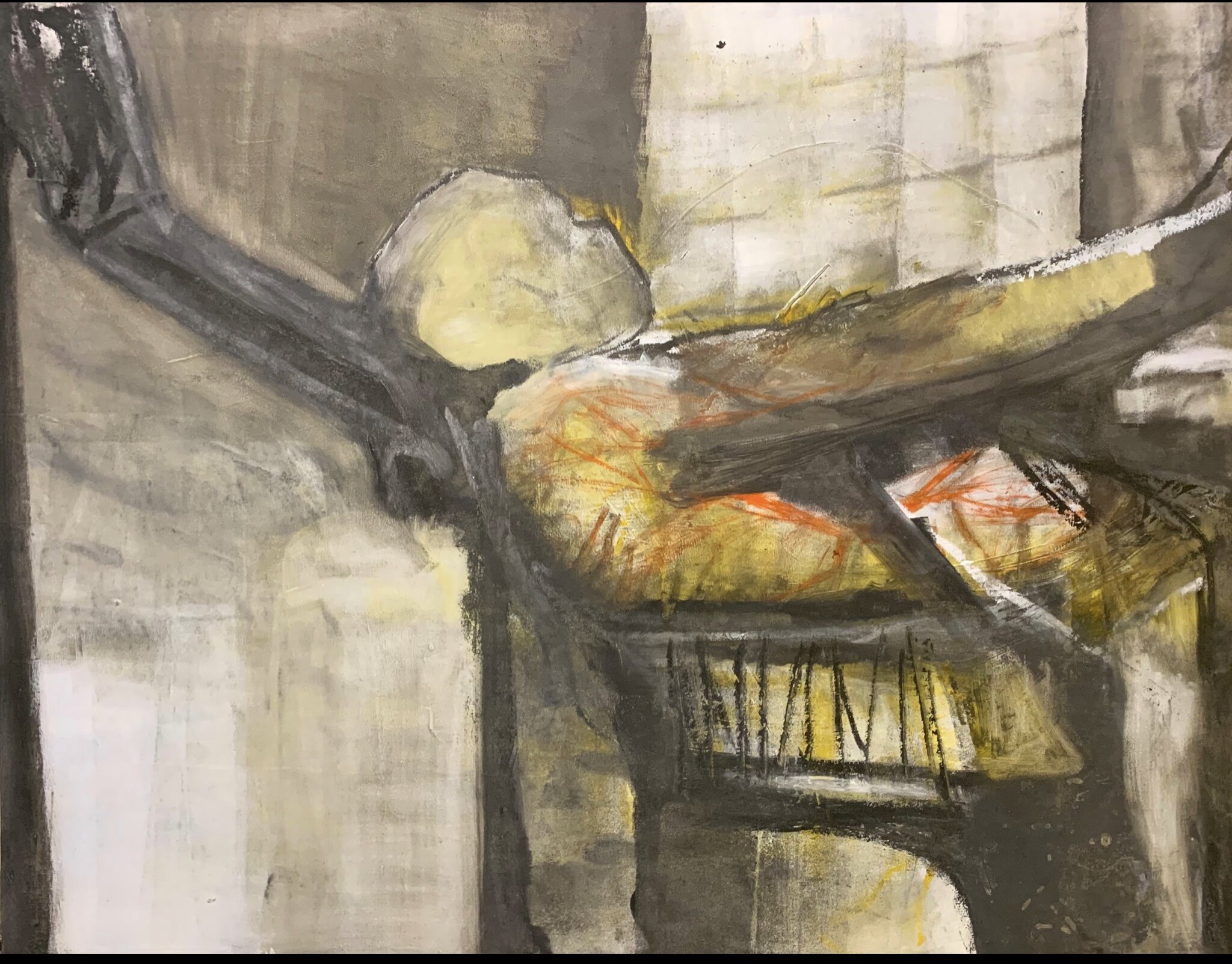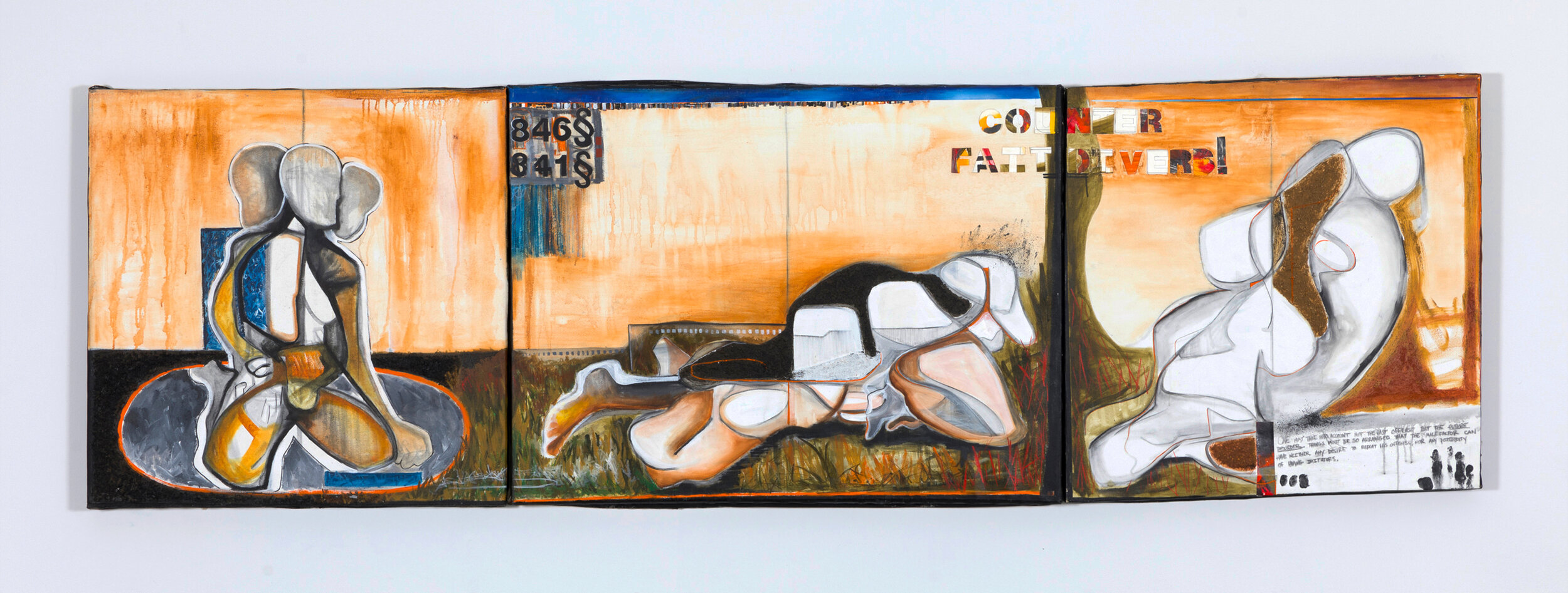
Jared Owens
Jared Owens’ work investigates how identity is constructed and deconstructed within a hierarchical system, employing materials latent with site-specific meaning that reference how physical environments and structures influence conceptions of self and determine one’s capacity to overcome restrictions. His art practice started inside federal prison, where he taught himself to draw, paint, and sculpt using found or discarded materials; symbolic references to those who society discards. Owens later began exploring the gestural nature of abstract expressionism as a liberating force, in contrast with a restrictively representational practice.
Owens created bête noire while serving an 18-year prison sentence. The triptych utilizes dirt and gravel from the prison yard mixed with black paint, functioning as a symbolic stand-in for the prison system containing and oppressing physical bodies. The origin of the title, bête noire literally means “black beast” and in its contemporary translation refers to a person or thing that is particularly disliked.
Since returning home, he has created the Parchman series, which is an abstracted, visceral representation of the horrific environment that people incarcerated in Mississippi’s infamous Parchman Prison are forced to endure. Owens’ imagery references footage obtained from cellphone recordings made by people inside to document inhumane conditions and incidents of extreme violence.
Bete Noire, 2012
Prison-yard dirt, gravel, acrylic paint
Jared Owens’ Bete Noire combines a range of media, including collage, abstract painting, and material explorations, to investigate how identity is constructed and deconstructed within a hierarchal system. The triptych utilizes dirt and gravel from the prison yard; materials latent with site-specific meaning that reference the role physical environments and architectural structures play in influencing conceptions of self and determining one’s capacity to overcome restrictions.
Jared Owens created Bete Noire while serving an 18-year prison sentence. While incarcerated, Owens began exploring the gestural nature of abstract expressionism as a liberating force, in contrast with a restrictively representational practice.





